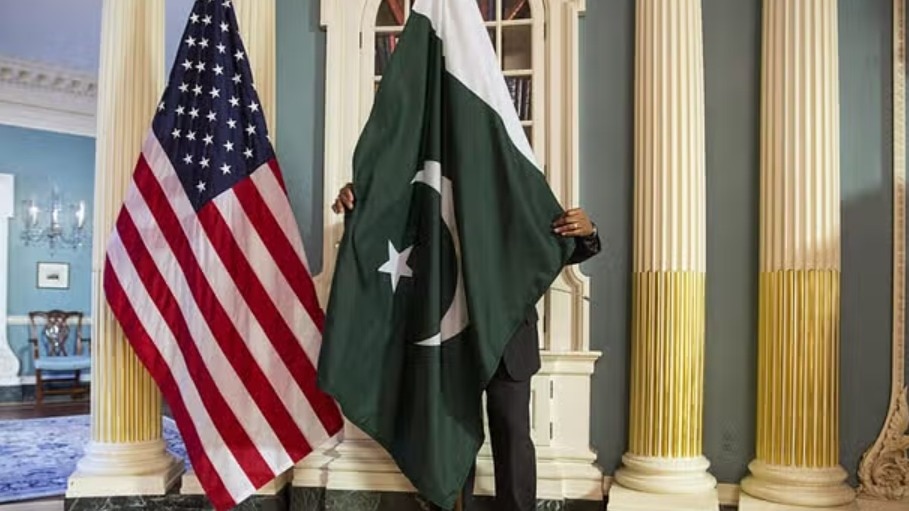US President Donald Trump on Sunday claimed credit for defusing tensions between India and Pakistan after a flare-up along the Line of Control. Trump praised both countries for showing “strength and wisdom” and even announced plans to boost trade and help find a “thousand-year” solution to Kashmir.
But there was a time when the US wanted nothing to do with Pakistan.
When Pakistan emerged as a new state in 1947, the United States wasn’t keen to embrace it as a military partner or an ally. In fact, Washington’s early strategy in South Asia leaned heavily in favor of India, viewing Pakistan with a degree of strategic reluctance.
This lesser-known phase in US-Pakistan ties was detailed by former Pakistan ambassador to the US, Husain Haqqani, in a speech delivered in September 2024 during his book launch – ‘Magnificent Delusions: Pakistan, the United States and an Epic History of Misunderstanding’.
Haqqani outlined how the early US administration was wary of aligning too closely with Pakistan, despite repeated overtures from Islamabad. “Pakistan (when it was carved out) ended up with a large army — now what would you do if you inherited an army which was one-third of the former Empire that you were carved out of but you had only 17% of the resources,” Haqqani said. “There are two sensible decisions. One is to stand the Army down, so that you don’t have to pay for it. The other is what Pakistan did — we will make ourselves useful for whatever is happening in the world and thereby get others to pay for our army.”
According to Haqqani, Pakistan’s initial appeal for US financial assistance was bold — it asked for $2 billion in 1947. “The Americans gave $10 million,” he said. “So you can see the difference between the expectation and the reality.”
Despite early efforts to woo the Americans, including diplomatic overtures and cultural diplomacy, Washington was skeptical. “From 1947 to 1952 actually the Americans said — no, no, no, we want to be helpful, you want some assistance etc., we will help you but we don’t want you as allies, we don’t want you as military partners,” Haqqani recalled.
Even then, Pakistan continued promoting itself as a frontline state against communism. “We have so many soldiers, they’re going to fight communism,” was the pitch to the West, said Haqqani. This narrative shifted when Dwight Eisenhower entered the White House and John Foster Dulles became Secretary of State. In his enthusiasm to build a global military arc against the Soviet Union, Dulles found a willing partner in Pakistan.
“Pakistan of course was eager. They said absolutely. And our military commander at that time, Field Marshal Ayub Khan, used a sentence that’s in the official State Department records of the meeting — ‘Our army will be your army as long as you pay for it’.”
Dulles, according to Haqqani, was so poorly informed that he even confused ethnic identities. When columnist Walter Lippmann questioned Pakistan’s relevance to the Southeast Asia Treaty Organization (SEATO), Dulles responded that “the Brits tell me that the only people who know how to fight in that region are the Gurkhas, so I have signed on Pakistan as allies.”
Lippmann corrected him, saying, “But Foster, the Gurkhas are not Pakistanis.” Dulles reportedly replied, “Oh, I thought they were Muslims.” Lippmann clarified again, “They are Hindus from Nepal.” “So that’s how the Americans kind of got into Pakistan — on a total false premise,” Haqqani said.
Meanwhile, Trump hailed the current India-Pakistan leadership for agreeing to a ceasefire after heightened tensions along the LOC and International Border. “I am very proud of the strong and unwaveringly powerful leadership of India and Pakistan for having the strength, wisdom, and fortitude to fully know and understand that it was time to stop the current aggression that could have led to the death and destruction of so many, and so much,” Trump posted on Truth Social on Sunday.
He said millions of good and innocent people could have died. “Your legacy is greatly enhanced by your brave actions. I am proud that the USA was able to help you arrive at this historic and heroic decision.” Trump, who claimed the US helped broker the ceasefire after a “long night” of talks, also announced plans to boost trade with both nations. “While not even discussed, I am going to increase trade, substantially, with both of these great Nations,” he said.
New Delhi, however, maintained that an agreement was bilateral and that firing stopped after the Pakistan Army’s DGMO called his Indian counterpart. EAM S Jaishankar said that India and Pakistan worked out an “understanding on stoppage of firing and military action”. “India has consistently maintained a firm and uncompromising stance against terrorism in all its forms and manifestations. It will continue to do so.”
Source:https://www.businesstoday.in/india/story/we-dont-want-you-as-allies-ex-diplomat-husain-haqqani-on-how-us-snubbed-pakistan-in-early-years-475832-2025-05-11?utm_source=rssfeed

